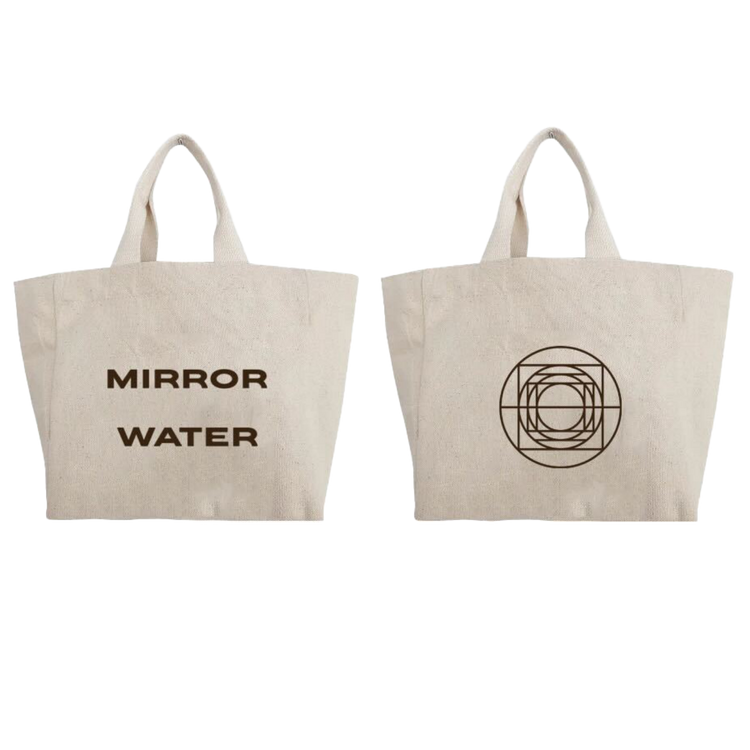
Busting Therapy Myths and Practising Everyday Mental Maintenance. A Q&A with Self Space
MIRROR WATER: Why might a person might seek out therapy?
SELF SPACE: Holding on to the idea that we need a reason to start therapy can actually hold us back from beneficial support.
There’s a misconception when it comes to therapy that you seek out support when you are at your lowest, you’ve hit the bottom and don’t know how to get back. In fact therapy is an incredible tool to better understand ourselves and our needs. It’s useful if we have an openness to self inquiry, get curious enough to explore yourself in a safe space. We don't need to have any specific symptoms or diagnosis or have a problem that needs solving. We can simply want to understand ourselves better, navigate reaching our potential or be wanting to explore the corners of our lives.
Other reasons we might begin therapy can include but not be limited to: feeling overwhelmed, stressed, envious, lonely, disengaged; experiencing grief, trauma, low moods, a loss of joy or hope, a lack of direction; using alcohol or substances in a way that does not feel good. You might also begin therapy through the desire to understand your past, or wanting to make an ok relationship great, or to process a significant life event. If you’re experiencing any of these things we’d suggest booking in for a chat and seeing where you could benefit from support.

MIRROR WATER: Do you have any tips or gages for people to check in with themselves regarding their mental wellbeing?
SELF SPACE: Busyness can be a big distraction when it comes to avoiding what is causing us distress. We have a tendency to plough through things so that we don’t feel what might be emotionally difficult for us, but when we stop and allow ourselves to really check in with what’s going on with us we will almost always have a very good idea of what needs tending to.
Having someone to support us to look at these aspects of ourselves and our lives in a productive, supportive and honest way can be hugely beneficial. To begin the process of breaking things down—having an hour each week to stop and enquire about ourselves—supports us not just in terms of crisis but in fact everyday, as we face the often grinding components of being human.
Taking a proactive approach to supporting our emotional selves (something Self Space wholeheartedly champion daily with ‘everyday mental maintenance’) gives us a chance to move beyond mental health awareness and into a space of mental wellness and understanding all year round.

MIRROR WATER: Based on the fact that almost everyone Googles their symptoms, is it ever okay to self-diagnose in the first instance?
SELF SPACE: Googling often gives us validation for our feelings. Sometimes we need a label to anchor to when we are overwhelmed by what we are feeling. But looking at symptoms and defining solutions can be very limiting. If we think of our life experiences as a process, a moving set of linked things which is fluid and is connected to the past and the present, to our thoughts and feelings, our bodies and minds, it isn’t often just one thing or another. Labelling emotions and experiences might in fact disable you from looking further into and at yourself, giving you immediate relief but not long term change and understanding. We would advise avoiding googling—but instead, engage in talk with friends, loved ones and therapists about how you're feeling and what’s happening for you.


MIRROR WATER: Should therapy be undertaken in combination with medication?
SELF SPACE: It certainly can be and it totally depends on each case and story. Sometimes the two work well in conjunction, sometimes one leads to the other. Therapy might support you moving away from medication if that’s something you want to pursue. In some cases, understanding your symptoms might lead to a diagnosis that calls for medication or a change in your current plan to support it. There is no clean cut rationale here as everyone’s experiences and needs here will differ, but having a space to explore what’s happening for you and what is and isn’t working is always beneficial.
MIRROR WATER: Is online therapy as beneficial as therapy in-person?
SELF SPACE: Virtual sessions are brilliant because they allow you to slip therapy seamlessly into your daily routine but it’s really important that you allow yourself a couple of minutes before and after the session to sit with your feelings and digest them before diving into your next task. Pop your phone on silent, tell anyone who may need to contact you that you’ll be out of contact for a bit, and don’t schedule anything for immediately after your appointment – even half an hour can help.
MIRROR WATER: Can or should someone go to therapy simply because they want to learn more about themselves?
SELF SPACE: Yes, 100 percent yes!
Stay tuned for our upcoming series with Self Space which will offer concise information about all of the different types of therapy with the aim of helping you to make informed decisions.















